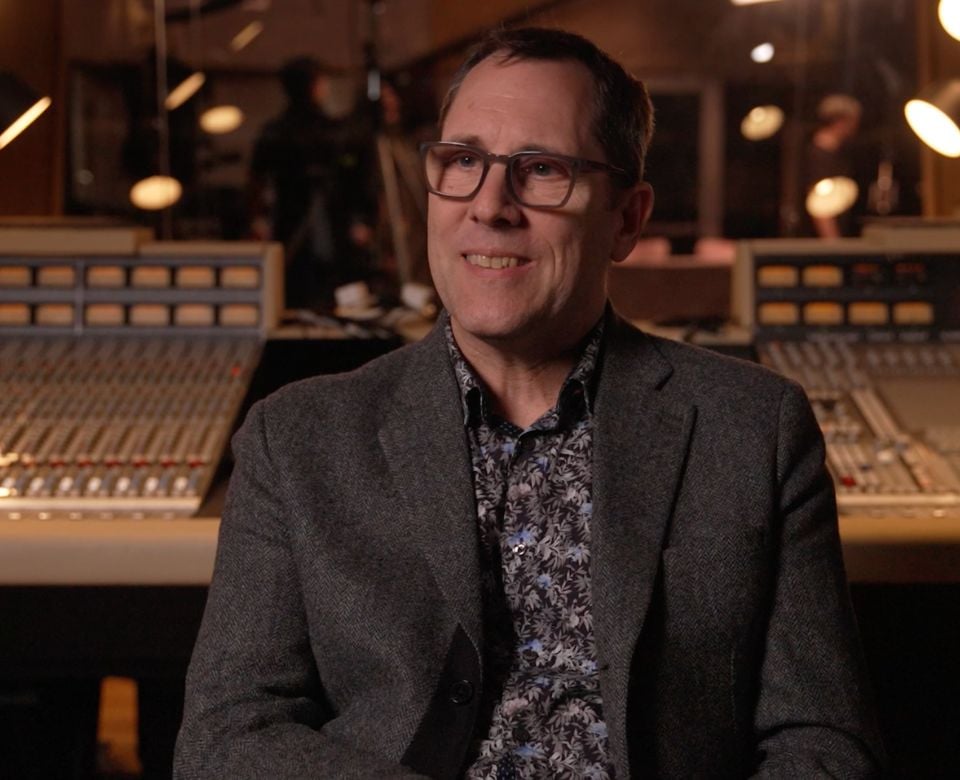
Leaders Profile: an exclusive interview with Bank of England's, Lee Fulmer
With a diverse career spanning multiple disciplines, visionary technology leader Lee Fulmer talks data, ethics and career advice.
From serving as a Board member at ICANN, the non-profit organisation at the forefront of revolutionising and liberating the internet, to helping create the content systems at the BBC and serving as CTO at J.P. Morgan and CIO and Chief Data Officer at UBS Investment Bank, Lee Fulmer’s career has been a masterclass in versatility.
But there’s more to this story than technology leadership.
For over thirty years, he has donned the hats of a designer, photojournalist, and editor, collaborating with a myriad of esteemed magazines and publications including Harper Collins, Future Publishing and 1854 Media. Amidst his present role, as Independent Chair of the Bank of England’s Reporting and Data Standards Transformation board, Fulmer finds solace in his passion for photography—which has garnered him 60+ awards from prestigious bodies such as the International Photography Awards and Prix de la Photographie Paris.
As he reflects on his remarkable career journey in this exclusive interview, Fulmer recollects encounters with leaders like Gordon Brown during his time at the Bank of Scotland, contributing to the Cruickshank report – which investigated UK banking in the early 2000s – and discusses career versatility, the value of data ownership and ethics, and advice for tomorrow’s technology leaders.
Watch the interview highlights with Lee Fulmer below:
Jumping onto the next industry
Throughout his 28-year career, Fulmer has taken on a broad range of roles, noting that he has been fortunate enough to have worked in industries going through significant change, such as financial services where he helped introduce the UK’s fast payment system.
How has he dealt with constant change to his roles and responsibilities?
“I think I was young and stupid,” Fulmer said at The Studio. “Like many of us, it just never occurred to me that you couldn't do it”.
Paired with his “limited attention span”, the idea that he could do something different each time appealed to Fulmer, as well as the ability to chase the ‘next shiny new thing’.
In the first decade of his career, he witnessed his peers and colleagues get promoted, buy new houses and make more money. By broadening his skillsets and focusing on being “better than average”, Fulmer would quickly rise through the ranks.
This breadth of experience, in his view, allowed Fulmer to become the successful technology leader he is today. He admitted that after spending the last 20 years in finance, he lost his fearlessness of “jumping around”.
After a life of constant shifts, Fulmer argued that he reached a point where he found an industry he’s doing well in and decided to stay.
“That just creates a natural sort of shift in your life,” he said.
A Chief Data Officer’s view on the value of data
As an experienced Chief Data Officer, Fulmer says he is fixated on data – but only when it helps the organisation to achieve a desired outcome.
Measuring the value of data involves knowing who owns that data set, but - says Fulmer - not as much who created the data and for what purpose. In order to be effective, he urged technologists to ask themselves are: Why was the data created, and for what purpose?
To illustrate the point, Fulmer points back to the “The Data Strategy Divide: Balancing Ethics, Efficiency and Transformation” roundtable at The Studio at Abbey Road Studios earlier this year.
Fulmer was speaking alongside Claire Deuchar, the CIO of the life-saving charity RNLI, who revealed that the non-profit’s data metrics centre on how many people get into danger in the water. The RNLI then uses this data to personalise their awareness campaigns to different audiences.
As one such example, RNLI’s data dashboard revealed that men often don’t make good decisions when they’re in the water, which in-turn informs how the non-profit tailors their messaging to prospective male swimmers.
Data ethics starts with your customer
As a CDO, Fulmer disclosed that he could talk about data ethics all day. To frame it in a simpler perspective, he looks at it from this standpoint: What would you want someone to do with your own data?
He said ethics are the guidelines and framework for how we behave and professional standards. More often than not, he feels that people confuse ethics with law – but this doesn’t mean they should be ignored. He encourages leaders to think about their customer base and how they would feel about the way their data is being used.
On the topic of data regulation, he pointed out that there are a variety of industries that are highly regulated, including banking – where Fulmer has spent a significant part of his career. Medicine, aerospace, pharmaceuticals and the food industry are all highly regulated and every one of these has the same challenges, such as data integrity and information security.
Further highlighting the importance of data regulation and adhering to requirements, Fulmer argued that the key to improving methods of data regulation is cross-industry collaboration.
His belief is that by engaging and connecting with leaders in diverse sectors, they can gain valuable insights into how other industries are addressing similar problems and challenges.
These exchanges, he says, offer a unique opportunity to uncover a variety of creative mindsets and methodologies, in turn providing fresh perspectives and solutions that may not have been discovered within a single industry’s siloed environment. Fulmer hopes that this knowledge exchange will help leaders “leapfrog” from their own problems, arguing that the best solutions are often found when looking beyond the usual areas.
Advising the next Lee Fulmer
Having left UBS in March 2023, Fulmer is keen to continue developing and learning - and is looking for an opportunity where he can continue to problem-solve.
“Some of my most interesting roles have involved delivering unusual solutions to complex challenges,” said Fulmer.
“I am looking for something involving a large transformation leveraging data and technology to drive a substantive business change.”
When speaking with his children, now starting careers of their own, Fulmer tells them the same thing he advises everyone else plotting their career journey – stay focused on adding a breadth of skills to your portfolio. This, he argued, will differentiate you as a potential candidate from the millions of other people you're competing against, while giving you a “unique viewpoint”.
He warned against falling into the trap of doing the same thing because it feels comfortable – technology leaders in particular, he says, need to challenge themselves and their colleagues to say: What's the outcome we want? What's the insight we're trying to gain?
One way in which these skills can be enhanced is by shadowing peers in other parts of the organisation – he gives the example of a similar scenario in a previous banking job.
“I would make my senior tech people go shadow the people in operations… and see the mess that they have to live with that we've created…because it'll make you a better developer. And I think as a manager it’s important to do the same thing.”
“I don't know that anybody out there is listening to this thinking ‘I want to be Lee Fulmer’, but on the off-chance they are, I would suggest that you really need to grow your breadth”.
Quick-fire Q&A
1. Dream job growing up?
Astronaut. I was fascinated by the moon landings and wanted to go there myself.
2. What keeps you up at night?
Climate change, the Ukrainian war, Trump's potential reelection…the world is in a particularly chaotic era at the moment.
3. What excites you about the next 12 months?
Being free to take on whatever new job opportunity excites me the most.
4. What do you do outside of work?
I am an avid photographer who also really enjoys travelling and scuba diving; combining the three is a win.
5. Best advice you’ve ever received?
"When someone senior asks if you want to do something, they’re not really asking since they already know they want you for the job.” An air force colonel gave me that advice, then asked if I wanted to do something!
About Leaders Profiles:
The Leaders Profiles series offers exclusive insights and strategies from the industry’s top executives. As the ultimate hub for leadership excellence, we connect and inspire today’s top C-suite professionals—CIOs, CISOs, CFOs, CDOs, CMOs and CXOs—through in-depth interviews, quick video segments and strategic deep dives. Whether it's through Leaders Profiles or Leader’s Corner, our goal is to equip you with actionable insights and innovative strategies, directly from the minds shaping the future of business. Explore more on leadership trends and strategies at our Leaders Profiles hub.
RELATED ARTICLES
Join the community
To join the HotTopics Community and gain access to our exclusive content, events and networking opportunities simply fill in the form below.
